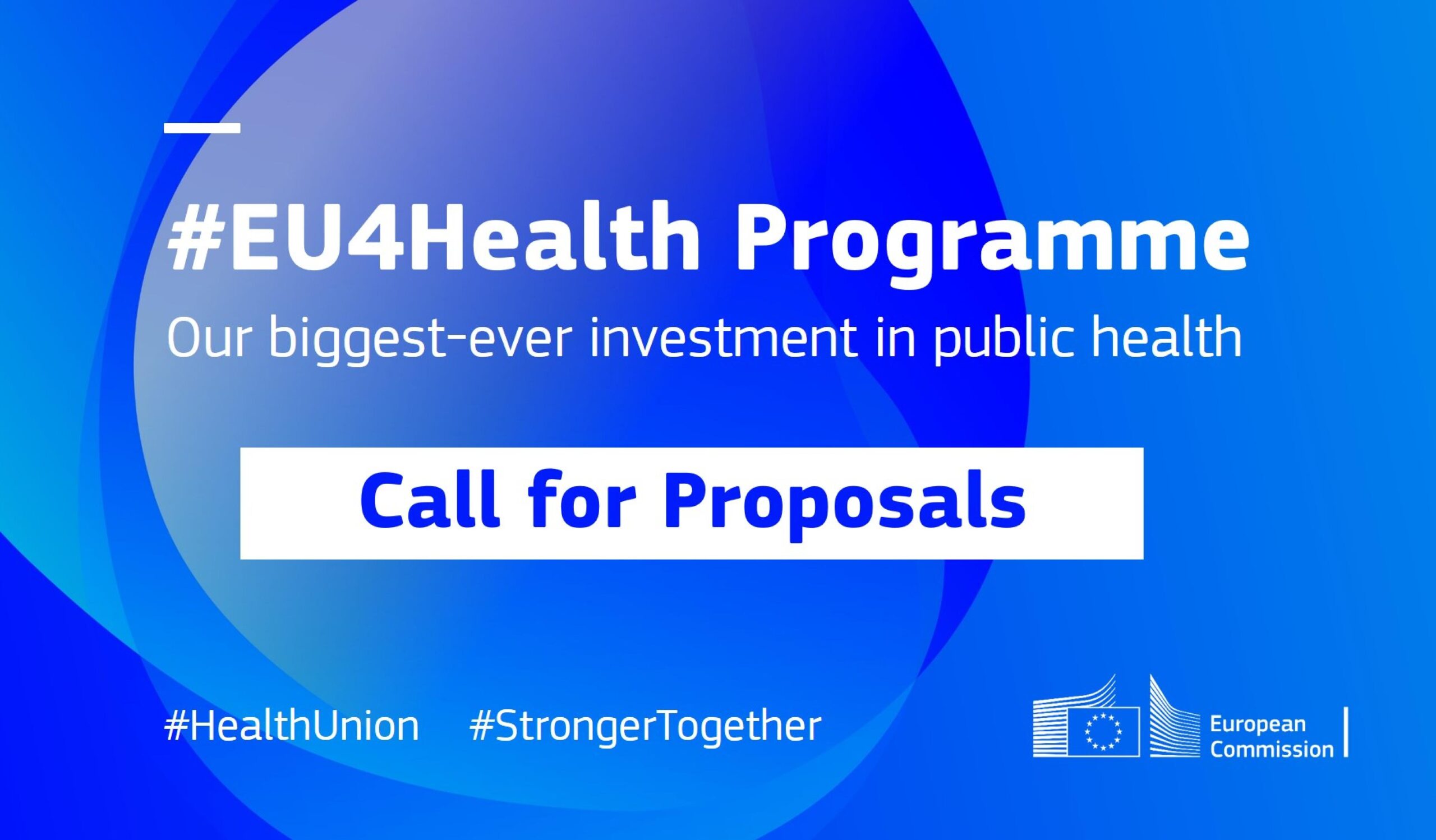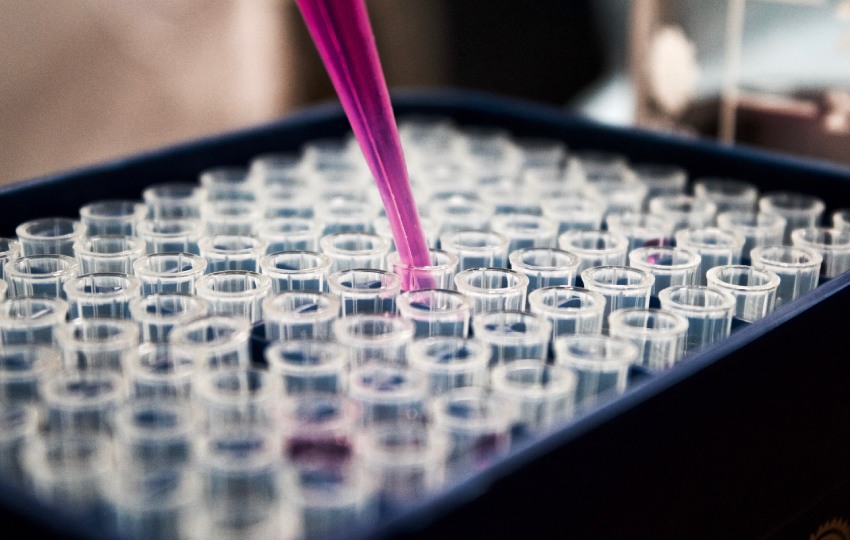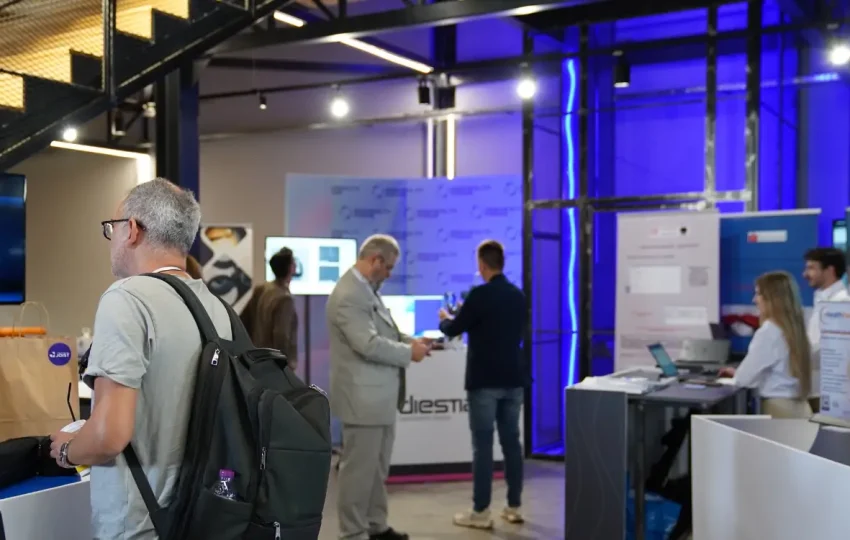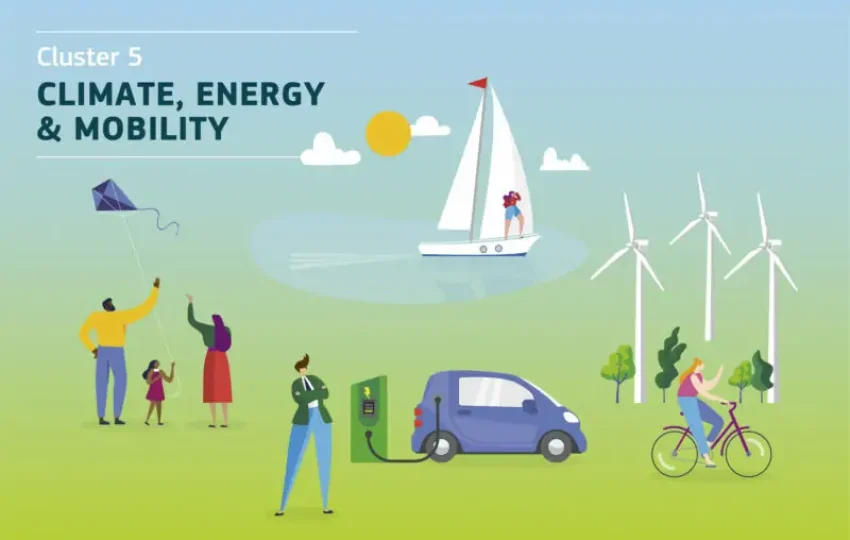When it comes to health funding in the European Union, few opportunities are as significant as the EU4Health calls for proposals. This initiative, part of the broader EU4Health Programme, offers substantial funding for projects that align with the EU’s health objectives. But what do you need to know before applying? This article will guide you through the process.
Understanding the EU4Health Programme
The EU4Health Programme is the EU’s response to COVID-19, which has affected millions and strained health systems across the globe. The programme aims to build a healthier European Union, prepare health systems more robustly for future health threats, and promote innovation in health. The key objectives and priorities of the programme include crisis response, disease prevention, health system strengthening, and driving digital transformation in health.
The Role of EU4Health Calls for Proposals
The EU4Health calls for proposals play a crucial role in the programme’s implementation. They invite organizations across the EU to submit project proposals that align with the EU4Health objectives. These calls are the primary way the programme distributes its funding, and they cover a wide range of health areas, from disease prevention to digital health innovation.
Current EU4Health Calls for Proposals on EUcalls Database

In the dynamic world of health innovation, opportunities abound for those ready to make a difference. Today, we’re shining a spotlight on some of the most exciting open calls available on the EUcalls platform. Each of these calls represents a unique chance to contribute to the advancement of health in the European Union.
1. Action grants on the safety and quality of new Substances of Human Origin (Breast milk, faecal microbiota transplants) (a) HS-g-23-50.01 Breast milk (HS-g-23-50.01)
Deadline: 17/10/2023
This call is all about bridging the gap in the regulation of therapies made from substances of human origin (SoHO) that can’t necessarily be defined as blood, tissues, cells, or organs. It’s a call for innovators ready to navigate uncharted territories in the realm of human Faecal Microbiota Transplants (FMT) and Breast Milk (BM) therapies.
The goal? To implement safety and quality guidelines for these therapies, supervised by the SoHO authorities. This action will help approximately 200 new entities or establishments working with BM or FMT prepare for the implementation of these new legal requirements.
This call aligns with the EU4Health Programme’s general objective of improving the availability, accessibility, and affordability of medicinal products and medical devices, and supporting innovation regarding such products.
2. Action grants on the safety and quality of new Substances of Human Origin (Breast milk, faecal microbiota transplants) (b) HS-g-23-50.02 Faecal microbiotic transplants (HS-g-23-50.02)
Deadline: 17/10/2023
This call is all about bridging the gap in the regulation of therapies made from substances of human origin (SoHO) that can’t necessarily be defined as blood, tissues, cells, or organs. It’s a call for innovators ready to navigate uncharted territories in the realm of human Faecal Microbiota Transplants (FMT) and Breast Milk (BM) therapies.
The goal? To implement safety and quality guidelines for these therapies, supervised by the SoHO authorities. This action will help approximately 200 new entities or establishments working with BM or FMT prepare for the implementation of these new legal requirements.
This call aligns with the EU4Health Programme’s general objective of improving the availability, accessibility, and affordability of medicinal products and medical devices, and supporting innovation regarding such products.
3. Call for proposals implementation of the agenda for medical ionising radiation applications (Samira action plan) – organisation of clinical audit campaigns as a tool to improve quality and safety of medical applications of ionising (CR-g-23-44-01)
Deadline: 17/10/2023
In the battle against cancer, innovation in diagnosis and treatment is paramount. This call is a beacon for those ready to contribute to Europe’s Beating Cancer Plan and the EU4Health Programme’s objective of fostering health in the Union.
The mission? To pilot clinical audit campaigns in diagnostic and interventional radiology, radiotherapy, and nuclear medicine. By identifying and uniting relevant actors and resources, this action aims to take into account the specificities of national health systems.
Up to four proposals will be accepted, ranging from organizing pilot audits in a single department or hospital to coordinated audits in several Member States. Priority will be given to proposals covering various types of medical practice in multiple Member States and different practices within regions of a Member State.
Building on the results of the QuADRANT and the EU-JUST-CT project, this clinical audit action seeks to improve justification of radiological imaging and the implementation of the optimization principle.
Implemented in close cooperation with other SAMIRA activities on quality and safety of medical applications of ionising radiation, this call is a step towards a future where high standards in cancer diagnosis and treatment are accessible to all.
4. Call for Proposals: action grants on Facilitating Organ Paired Exchange (HS-g-23-51)
Deadline: 17/10/2023
In the realm of organ transplantation, the waiting game can be a matter of life and death. This call is for those ready to change the status quo and make a significant impact on organ transplantation in Europe.
The challenge? To facilitate organ paired exchange, particularly for kidney transplants. When a willing donor doesn’t match immunologically with the patient, exchanges can be organized to match an incompatible donor-recipient pair with another, creating a series of matches. While such exchange schemes are being developed among some Member States, there’s a need to strengthen these schemes, given the scarcity of organs available for transplantation.
This call is an opportunity to build on the ongoing development of a software including the matching algorithm, funded by a European Cooperation in Science and Technology (COST) action. The software is expected to be ready by the end of 2022, paving the way for more efficient and effective organ paired exchanges.
By responding to this call, you could play a part in saving lives and transforming organ transplantation in Europe.
5. Call for proposals: action grants on mental health challenges for cancer patients and survivors Sub-topic (a): Mental health and Cancer (CR-g-23-19.01)
Deadline: 17/10/2023
Cancer is not just a physical battle; it’s a mental one too. This call is for those ready to address the mental health challenges faced by cancer patients and survivors, a critical yet often overlooked aspect of cancer care.
The task? To reduce the burden of cancer and mental health problems. With around 2.7 million people diagnosed with cancer in the Union every year, and the number of survivors growing, the need for comprehensive care that addresses both physical and mental health is more important than ever.
This call is an opportunity to contribute to Europe’s Beating Cancer Plan and the EU Mission on Cancer, which aim not only to ensure that cancer patients survive their illness, but that they live long, fulfilling lives, free from discrimination and unfair obstacles.
By responding to this call, you could play a part in promoting mental health, reducing the risk of mental health problems, and improving the quality of life for cancer patients and survivors in the Union.
6. Call for proposals: action grants on mental health challenges for cancer patients and survivors Sub-topic (b): European Code for Mental Health (CR-g-23-19.02)
Deadline: 17/10/2023
Mental health is a crucial part of the cancer journey, and this call is for those ready to shape the European Code for Mental Health. This is a unique opportunity to make a lasting impact on the mental health landscape for cancer patients and survivors across the Union.
The mission? To create a code that will help Member States and public health authorities promote mental health among their citizens. With the number of cancer survivors growing every year, the need for a comprehensive approach that addresses both physical and mental health is more important than ever.
This call aligns with Europe’s Beating Cancer Plan and the EU Mission on Cancer, which aim to ensure that cancer patients not only survive their illness, but also live long, fulfilling lives, free from discrimination and unfair obstacles.
By responding to this call, you could play a part in shaping the future of mental health care for cancer patients and survivors in the Union.
7. Call for proposals for a program on orphan medical devices, in particular targeting pediatric patients (HS-g-23-65)
Deadline: 17/10/2023
When it comes to pediatric patients, innovative medical devices can be the key to saving lives and improving healthcare. This call is for those ready to pave the way for orphan medical devices that benefit a relatively small group of patients, with a particular focus on pediatric patients.
The challenge? To bridge the gap in legislation and market access for orphan devices, especially those intended for pediatric patients. While medical devices and In Vitro Diagnostic Medical Devices (IVDs) play a fundamental role in healthcare, orphan devices specifically cater to a small group of patients, and the lack of specific legislation at the EU level adds to the complexity.
By responding to this call, you could be a part of breaking barriers and driving innovation for pediatric patients, whose unique needs and characteristics often present challenges in device development. The costs related to market access, clinical evaluation, and conformity assessment can hinder the development of pediatric devices, leaving innovation in this area lagging behind advancements for adult devices.
This call is aligned with the policy priority to support the implementation of medical devices and in vitro diagnostic medical devices legislations. It also advances the EU4Health Programme’s general objective of improving the availability, accessibility, and affordability of medicinal products and medical devices, while supporting innovation in healthcare products.
Join us in the journey to pioneer orphan medical devices for pediatric patients and make a meaningful impact on the future of healthcare!
8. Call for proposal: action grants to contribute to the organizations of conference and events (OA-g-23-89)
Deadline: 17/10/2023
In the pursuit of a healthier and united Europe, this call invites you to empower health conferences and events that will shape the future of healthcare policies and initiatives.
The objective? To support the organization of conferences and events that align with the objectives of Regulation (EU) 2021/522 and contribute to the implementation of legislative and non-legislative initiatives of the Union. These events are set to take place in 2023, 2024, or both, and will play a crucial role in advancing European health policies.
By responding to this call, you could be part of initiatives such as Europe’s Beating Cancer Plan, the Pharmaceutical Strategy for Europe, the Global Health strategy, and the upcoming Mental Health Communication. These events will also contribute to the implementation of Union health legislation, ensuring a harmonious integration of national health policies across EU Member States.
9. Call for proposals to support access to medical devices for cross border health threats (HERA) (CP-g-23-13)
Deadline: 17/10/2023
In the face of serious cross-border health threats, access to medical countermeasures is crucial. This call invites you to join forces and support consortia that will pave the way for devices designed to combat such threats.
The objective? To increase patients’ access to medical countermeasures, a critical policy priority in today’s healthcare landscape. This call also aligns with the EU4Health Programme’s overarching goal of improving the availability, accessibility, and affordability of medicinal products and medical devices, while fostering innovation.
The focus of this action is on empowering consortia that provide a platform of experienced regulatory, business planning, and device development services. These services will guide the advancement of devices specifically intended for serious cross-border health threats. It’s important to note that this action does not cover orphan medical devices, as they fall under a separate action within this work programme.
Consortia play a pivotal role in facilitating the development, production, and distribution of these life-saving devices. By offering services and advice on various aspects, including intellectual property, prototyping, engineering, laboratory and animal testing, grant-writing, and clinical investigation design, these consortia will drive progress in the field.
The successful consortium should bring together a diverse array of associations, organizations, and institutions, each contributing expertise at different stages of device development, from concept formation to commercialization.
This call is a unique opportunity to unite individuals, groups, and institutions with a shared goal of ensuring access to medical devices during times of serious health threats. Your contributions in knowledge, business planning, conformity assessment requirements, intellectual property protections, and scientific capabilities will make a tangible difference in healthcare.
10. Call for proposals on the prevention of NCDs in the area of mental health including actions supporting vulnerable population groups, such as migrants, refugees, Roma people, and displaced people from Ukraine (DP-g-23-32-02)
Deadline: 17/10/2023
Mental health is at the forefront of this call, seeking to reduce the burden of mental health problems and promote overall mental well-being in the Union. The objective is to complement the implementation of the joint action “DP-g23-32-01 ‘Healthier Together’ EU NCD Initiative – Mental Health,” led by Member States.
The focus of this action is to address the prevention of Non-Communicable Diseases (NCDs) specifically in the realm of mental health. By targeting and addressing related risk factors and their determinants, this call aims to make a significant impact on both individual and population-level mental health.
Of particular importance is the inclusion of vulnerable population groups, including migrants, refugees, Roma people, and displaced people from Ukraine. These communities often face unique challenges when it comes to mental health, and tailored actions and support are essential to create positive change.
Joining this call presents an opportunity to contribute to the promotion of mental health and well-being, fostering resilience and empowerment among vulnerable populations. By collaborating with other stakeholders, including Member States, your proposals can play a vital role in shaping effective strategies to combat NCDs in mental health.
This action seeks innovative approaches and concrete actions that align with the objectives of “Healthier Together” EU NCD Initiative – Mental Health. Together, we can make a meaningful difference in the lives of individuals and communities, working towards a mentally healthier and more resilient Union.
11. Call for proposals to support stakeholders on the prevention of NCDs in the area of chronic respiratory diseases (DP-g-23-31-02)
Deadline: 17/10/2023
In the quest to alleviate the burden of Chronic Respiratory Diseases (CRDs) in the Union, this call invites you to complement the activities of the joint action “DP-g-23-31-01 ‘Healthier Together’ EU NCD Initiative – Chronic respiratory diseases,” led by Member States.
The primary objective is to target and address related risk factors and determinants to effectively reduce the burden of CRDs at both personal and population levels. By aligning with the “Healthier Together” EU NCD Initiative, this action seeks to make a significant impact on the prevention of Non-Communicable Diseases (NCDs) in the realm of chronic respiratory health.
Stakeholders play a critical role in shaping the landscape of healthcare, and your involvement is vital in this endeavor. By contributing to this call, you can support and collaborate with other stakeholders in advancing strategies to prevent CRDs and improve respiratory health outcomes.
Innovation and comprehensive actions are encouraged, focusing on the needs of individuals and communities affected by chronic respiratory diseases. As we work together, we can identify and address the root causes, risk factors, and determinants of CRDs, fostering a healthier and more resilient Union.
Your proposals should complement the activities of the joint action “Healthier Together” EU NCD Initiative, with a focus on concrete actions that will drive positive change. By joining this call, you become part of a unified effort to reduce the burden of CRDs, improving the quality of life for individuals and creating a healthier future for the entire population.
12. Call for proposals on prevention of NCDs in the area of dementia and other neurological disorders (DP-g-23-33-02)
Deadline: 17/10/2023
Dementia and other neurological disorders pose significant challenges to individuals and communities across the Union. In response to this pressing issue, we invite you to complement the implementation of the joint action “DP-g23-33-01 ‘Healthier Together’ EU NCD Initiative – Dementia and neurological disorders,” led by Member States.
The primary aim of this action is to reduce the burden of dementia and other neurological disorders at both personal and population levels. To achieve this, we must target and address related risk factors and their determinants, working collaboratively with stakeholders to implement effective prevention strategies.
Dementia and neurological disorders can have far-reaching effects on individuals and their families. By aligning with the “Healthier Together” EU NCD Initiative, your proposals can contribute to creating a healthier future for those affected by these conditions.
We encourage comprehensive and innovative actions that address the unique challenges posed by dementia and neurological disorders. As you join this call, you become part of a collective effort to combat NCDs in the realm of mental health and neurological well-being.
Collaboration is key in tackling this multifaceted issue, and your involvement as a stakeholder is crucial. By supporting and engaging in this call, you can play an active role in reducing the burden of dementia and neurological disorders in the Union.
Together, let’s work towards a future where individuals affected by these conditions receive the care and support they need, promoting mental well-being and improving the quality of life for all.
Eligibility Criteria for EU4Health Calls for Proposals
Before you start drafting your proposal, it’s crucial to understand the eligibility criteria for the EU4Health calls for proposals. These criteria ensure that the programme funds projects that are most likely to contribute to its objectives.
Who Can Apply?
Eligible entities for the EU4Health programme include a wide range of organizations. These encompass health organizations, non-governmental organizations (NGOs), businesses, universities, research institutions, and public authorities. Both entities from EU countries and non-EU countries associated with the programme can apply.
Specific Requirements or Restrictions
While the EU4Health programme is quite inclusive, there are specific requirements that applicants must meet. For instance, some calls may require applicants to form consortia with partners from different EU countries. Others might focus on specific health areas, such as digital health or disease prevention, meaning that project proposals should align with these focus areas.
It’s also worth noting that the EU4Health programme follows strict ethical guidelines. All proposals must comply with these guidelines, and any proposal that involves human participants or animals will undergo a thorough ethical review.
Understanding these eligibility criteria is the first step towards a successful application. However, meeting the criteria doesn’t guarantee funding – that’s where a strong proposal comes in.
Common Mistakes to Avoid When Applying for EU4Health Calls for Proposals
Applying for EU4Health calls for proposals can be a complex process, and it’s easy to make mistakes that could hurt your chances of success. Here are some common pitfalls and how to avoid them:
1. Not Reading the Call Documents Carefully
One of the most common mistakes is not reading the call documents carefully. These documents provide crucial information about the call’s objectives, requirements, and evaluation criteria. Make sure to read these documents thoroughly and understand them before you start writing your proposal.
2. Not Aligning the Proposal with the Call’s Objectives
Another common mistake is not aligning the proposal with the call’s objectives. The evaluators will assess how well your project contributes to the objectives of the call. Make sure to clearly demonstrate this alignment in your proposal.
3. Overestimating the Project’s Impact
It’s important to be realistic about what your project can achieve. Overestimating the project’s impact can make your proposal seem unrealistic and raise doubts about your ability to deliver the promised results. Be honest and realistic about your expected results.
4. Underestimating the Budget
Underestimating the budget can lead to financial difficulties later on. Make sure to carefully calculate your budget and include all necessary costs. Remember that the budget should be realistic, cost-effective, and aligned with the project’s activities.
5. Missing the Deadline
Late submissions are typically not accepted for EU4Health calls for proposals. Make sure to start preparing your proposal well in advance and submit it before the deadline.
Avoiding these common mistakes can increase your chances of success in the EU4Health calls for proposals. Remember, careful preparation and attention to detail are key.
Conclusion
Applying for EU4Health calls for proposals is a significant undertaking, but with careful preparation and a clear understanding of the process, you can increase your chances of success. Remember to align your proposal with the call’s objectives, be realistic about your expected results and budget, and submit your proposal on time. By avoiding common mistakes and following the tips in this article, you can navigate the application process effectively and secure funding for your health project.
Additional Resources
For more information about the EU4Health programme and the calls for proposals, you can visit the following resources:
Remember, the journey to securing EU4Health funding is a marathon, not a sprint. Take the time to prepare a compelling proposal, and don’t get discouraged if your first application isn’t successful. Keep refining your proposal, stay updated with the latest calls, and keep trying. Good luck!
Frequently Asked Questions (FAQs)
1. What is the EU4Health Programme?
The EU4Health Programme is the EU’s ambitious health initiative in response to COVID-19. It aims to build a healthier European Union, prepare health systems more robustly for future health threats, and promote innovation in health. The programme has a budget of €5.3 billion for the 2021-27 period.
2. Who is eligible to apply for EU4Health Calls for Proposals?
Eligible entities for the EU4Health programme include a wide range of organizations such as health organizations, non-governmental organizations (NGOs), businesses, universities, research institutions, and public authorities. Both entities from EU countries and non-EU countries associated with the programme can apply.
3. What are some common mistakes to avoid when applying?
Common mistakes to avoid include not reading the call documents carefully, not aligning the proposal with the call’s objectives, overestimating the project’s impact, underestimating the budget, and missing the deadline.
4. Where can I find more information about EU4Health Calls for Proposals?
You can find more information about EU4Health Calls for Proposals on the EU4Health Programme Official Website and EUcalls.


